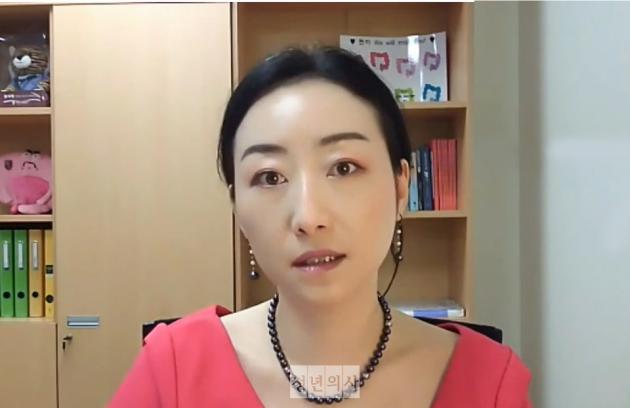Korean physicians staged a strike twice recently, opposing the government’s plan to increase admissions quotas at medical schools.
However, the public criticized the medical community for adhering to their vested rights. Some debated whether medical services should be regarded as public or not.
A doctor living in the U.K. said she could not understand why Korean people were hostile to the strike by local physicians. She also questioned why the Korean public was asking doctors to act like civil servants even though they spent their private money to graduate medical schools and became doctors.
Park Hyun-mi, former leader of the Korean Doctors Society in the U.K., appeared on a YouTube show on Friday to explain why British interns and residents staged a strike four times several years ago. Park graduated from Birmingham Medical School in 2002 and served as a professor of the Surgery Department of Nottingham University Hospitals. She came to Korea last year for training. Now, she serves as a researcher at the Medical Education Department of Korea University College of Medicine.
Park participated in the four strikes by British trainee physicians in 2016, and she was also a trainee surgeon then.
The dispute between junior doctors and the British government came after the U.K. government announced that it would introduce seven-days medical services by trainee physicians to make treatments available during the weekends, Park said. Young doctors strongly opposed the plan, saying that seven days of medical services would increase working time and reduce junior doctor pay.
According to Park, young British doctors tried to resolve the issue through dialogue with the government. However, the British government pushed through the plan, and junior doctors went ahead with four times of walkouts in 2016. British doctors have a labor union.
Despite the strikes, the U.K. government did not change the policy. Then, British trainee doctors started to leave for Australia, New Zealand, Canada, South Africa, and Singapore, where their medical licenses were recognized, Park said.
“The U.K. government pushed for the policy in the autumn of 2016. Even after strikes, the policy didn’t change. So, the trainee doctors began to leave the U.K.,” she said.
The number of interns and residents in the U.K. fell to half of all graduates of medical schools in 2017, and the ratio went down to as low as 30 percent, according to Park. “Two-thirds of medical school graduates do not receive medical training in the U.K., and specialists are disappearing. In 2017 alone, 9,000 junior doctors left the U.K.,” she said.
The U.K. is known to produce about 8,000 doctors a year. More doctors than newly made doctors left the country last year. Despite the situation, the healthcare environment turned worse in the U.K. The working time for trainee physicians increased, but that for other healthcare workers such as nurses and radiologists did not.
Park witnessed a strike by Korean junior doctors in 2020, four years after 2016. She also watched the public criticizing the doctors’ strikes. She said she could not understand such circumstances.
“I could understand if British people criticized the doctors’ strike because the U.K. raises doctors with taxpayers’ money. So, the British people have the right to criticize,” she said.
However, Korean people do not have the right to criticize Korean doctors because Korean doctors do not receive state support for their medical school tuitions and training.
“There is no country like Korea where people can get good medical services at low prices. Korean medical services are speedy, and it suits the nature of Koreans. But I don’t understand why Koreans are so unhappy,” Park said.
In the U.K., all doctors get medical training within a state-run healthcare system and work at state-run hospitals, she noted. However, in Korea, over 99 percent of Korean doctors work at private medical institutions. Still, the Korean government claims that medical services are almost public services, which did not make any sense, she added.

“We can call it state-run healthcare service if the government supports it and be responsible for it. But in Korea, the government gets to decide only and avoids responsibility,” Park said.

